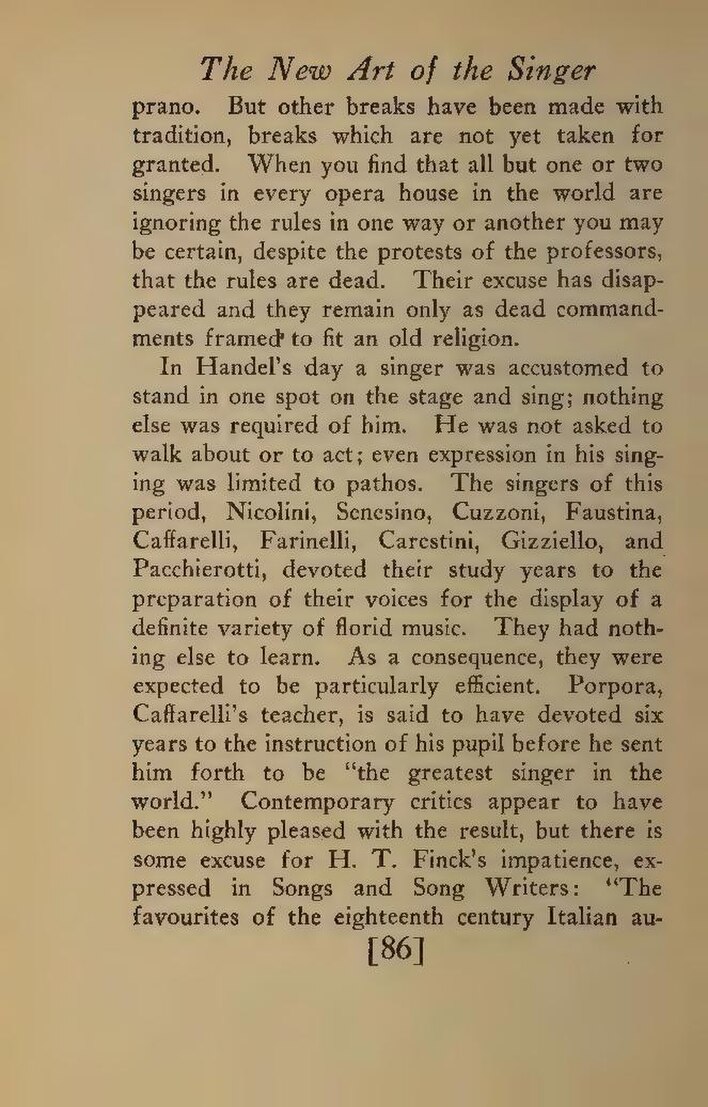prano. But other breaks have been made with tradition, breaks which are not yet taken for granted. When you find that all but one or two singers in every opera house in the world are ignoring the rules in one way or another you may be certain, despite the protests of the professors, that the rules are dead. Their excuse has disappeared and they remain only as dead commandments framed to fit an old religion.
In Handel's day a singer was accustomed to stand in one spot on the stage and sing; nothing else was required of him. He was not asked to walk about or to act; even expression in his singing was limited to pathos. The singers of this period, Nicolini, Senesino, Cuzzoni, Faustina, Caffarelli, Farinelli, Carestini, Gizziello, and Pacchierotti, devoted their study years to the preparation of their voices for the display of a definite variety of florid music. They had nothing else to learn. As a consequence, they were expected to be particularly efficient. Porpora, Caffarelli's teacher, is said to have devoted six years to the instruction of his pupil before he sent him forth to be "the greatest singer in the world." Contemporary critics appear to have been highly pleased with the result, but there is some excuse for H. T. Finck's impatience, expressed in Songs and Song Writers: "The favourites of the eighteenth century Italian au-
